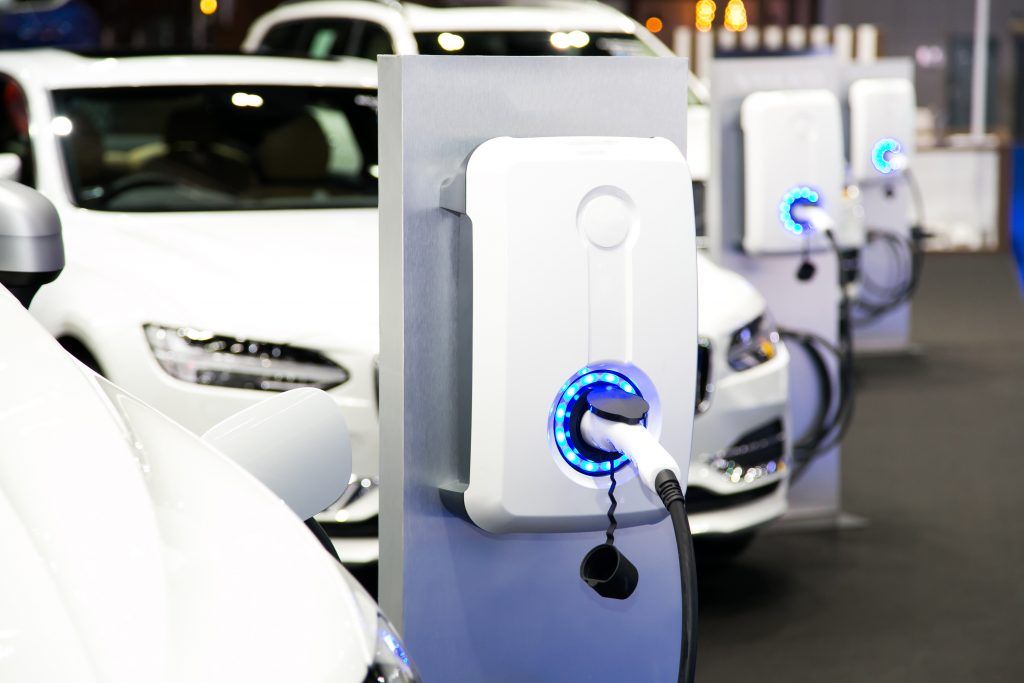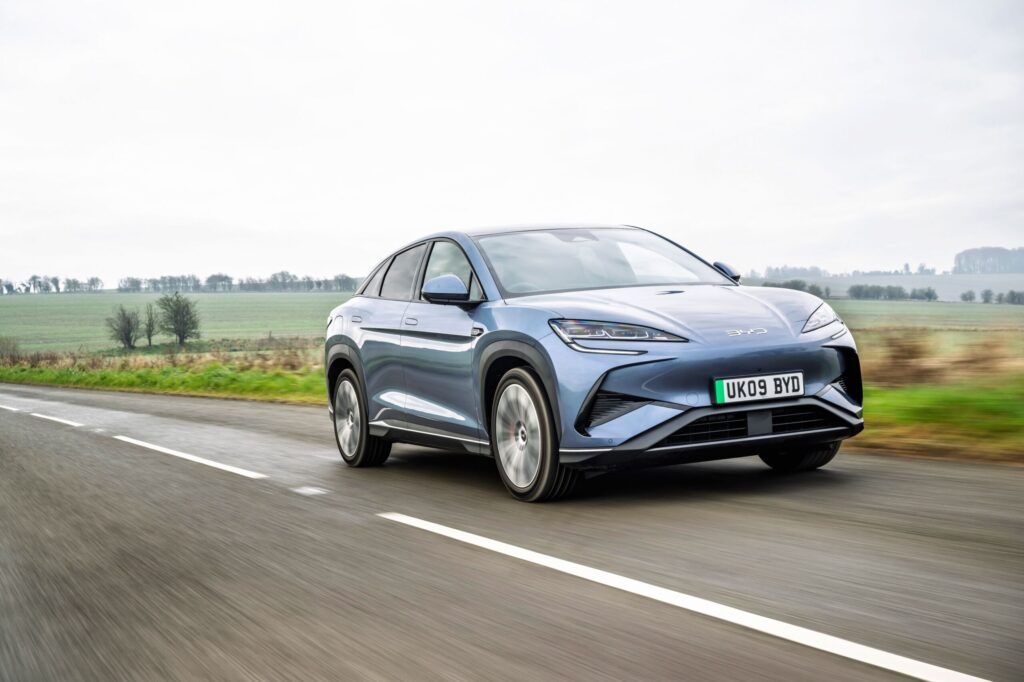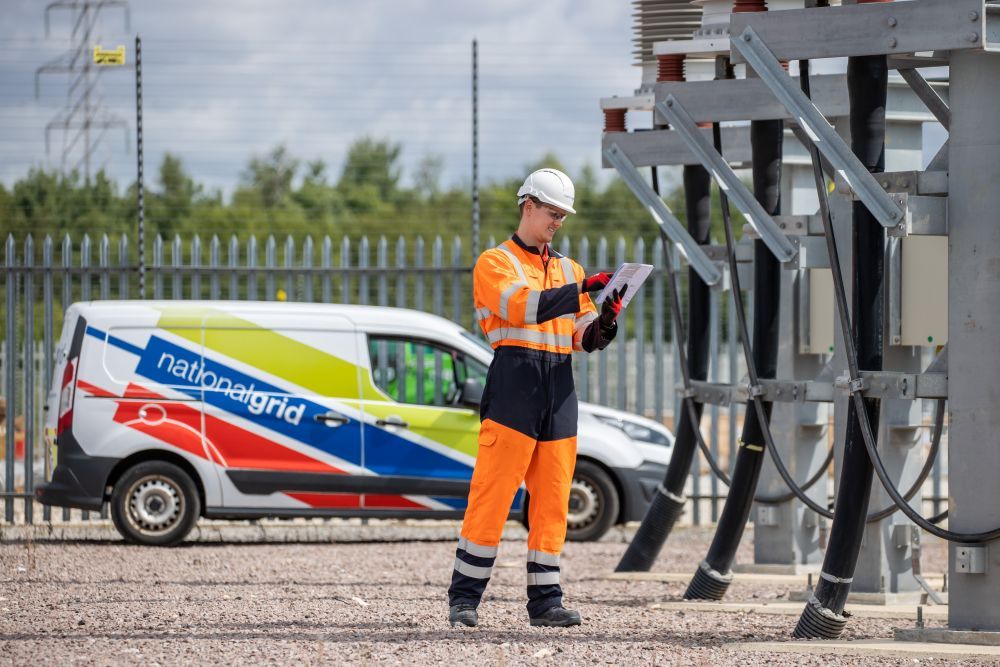New Zapmap charging statistics show that the rate of electric vehicle charge point installation has increased by over 80% and there are now more than 170 ultra-rapid hubs across the UK.
Zapmap, the UK’s leading charge point mapping service, has published its new mid-year statistics for charge point installations in 2023.
They show that during the first half of 2022 an average of 891 charging devices were installed each month, but fast-forward to the beginning half of 2023 and the UK is now seeing an average of 1,622 charging devices installed per month. This means the rate of installation has increased by around 82%. If the current rate of growth continues, Zapmap calculations indicate there will be more than 50,000 charge points in the UK by the end of the year.
At present, the latest Zapmap figures show there are more than 44,000 public charging devices installed across the UK, as of the end of June 2023. This represents overall year-on-year growth of 36%.
The number of chargers available is only part of the picture, however. Breaking these latest figures down by power rating shows that almost 20% of devices are rapid or ultra-rapid chargers, used for en-route charging when drivers want to recharge as quickly as possible. There were 8,680 of these types of chargers at the end of June.
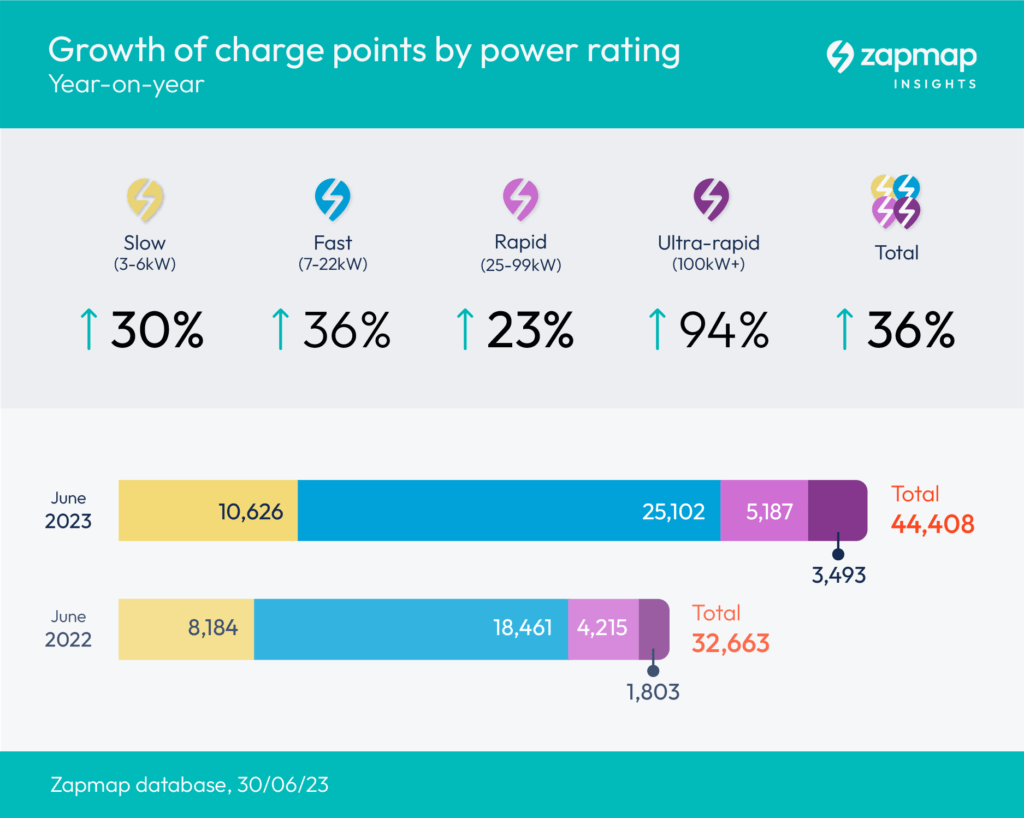
Breaking these figures down further, it becomes clear that the devices which demonstrate the highest year-on-year growth are ultra-rapid chargers. These high-powered devices, which cater to drivers looking to charge up as quickly as possible, make long journeys far easier than they were just a few years ago.
Indeed, at the end of June 2022 there were 1,803 ultra-rapid devices in the UK – the majority of which were Tesla Superchargers. As of last month, there are now 3,493 ultra-rapid devices, the vast majority of which are open for public use. This represents an impressive 94% increase in the number of ultra-rapid chargers available.
What’s more, charging ‘hubs’ – where drivers will find six or more rapid/ultra-rapid chargers in one location – are also opening at a significant rate. At the end of June 2022, there were 79 of these ultra-rapid hubs. As of last month, there are now more than 170 ultra-rapid hubs, not to mention a further 77 Tesla Supercharger hubs.
There are further positives to be found when looking into the distribution of the 1,690 new ultra-rapid devices installed across the UK in the past year. Nine of twelve geographical areas of the country saw more than 100 new ultra-rapid devices installed, with the South East seeing the most at 269.
In contrast, the North East and Wales saw only 61 and 62 new ultra-rapid chargers each, although this represented increases of 81% and 161% respectively. Northern Ireland saw the smallest number of ultra-rapids installed, with only 16. However, this was up from zero the previous year.
Of course, ultra-rapid devices are not the only type of charger being installed. As of June 2023, Zapmap’s figures show that 56% of devices are destination chargers, useful for topping up the battery when parked at locations such as supermarkets or gyms. There were 25,102 of these chargers as of the end of last month, exhibiting year-on-year growth of 36%.
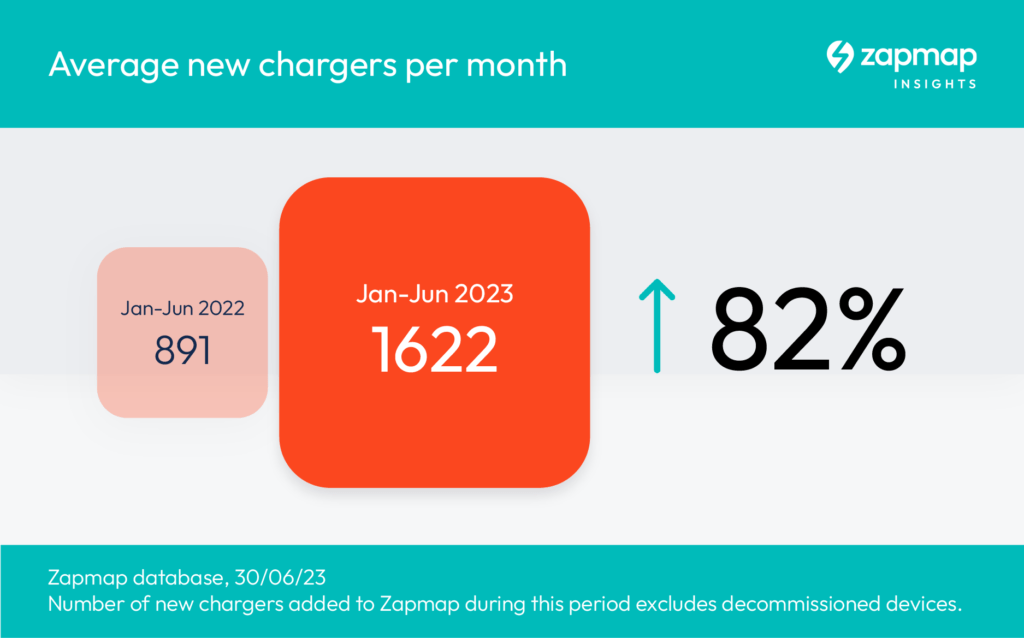
Significantly, around 24% of public charging devices are ‘slow’ chargers, predominantly found on residential streets to provide an alternative to charging at home. The number of these chargers has grown by 30% since June 2022, increasing from 8,184 to 10,626 at the end of June 2023.
In terms of overall regional distribution, 36% of all new charge points were installed in Greater London and the South East over the past year. However, there are distinct differences in what was installed within the two areas.
The South East, for example, saw high installations of all types of chargers across the board. Meanwhile, most of the chargers installed in Greater London (83%) were on-street chargers. Indeed, Greater London was the only region to show a significant net increase in slow, on-street chargers – reflecting the area’s high concentration of relatively affluent households without off-street parking.
Other areas showed high growth from a low base. Wales, the West Midlands and the East of England, for instance, all showed increases of around 50% over the same period, with notable growth in both destination chargers as well as rapid and ultra-rapid chargers.
Melanie Shufflebotham, Co-founder & COO at Zapmap, said: “It’s really encouraging to see the pace of charger installation across the UK grow by over 80% compared to this time last year. We know that the perceived lack of charge point infrastructure is a concern for those considering getting an electric car. These latest figures should go a long way to alleviate those concerns and give drivers confidence to make the switch.
“In particular, as we approach the summer holidays, having an additional 90 new charging hubs spread across the UK is a huge step up from last year, and will make a real difference for electric car drivers travelling long distances.
“All areas of industry need to continue to work together to make sure the rollout continues at pace across the whole UK as more and more electric car drivers take to the road.”
Jade Edwards, Head of Insights at Zapmap, added: “It’s great to see these latest Zapmap figures because they can really help people to understand how the rollout of the UK’s charging infrastructure is playing out across the country.
“We know it can be difficult to see larger changes occurring from the ground. But from the rate of installation increasing through to the types of chargers being installed at a regional level, these statistics can help to give clarity on how the UK’s charging infrastructure is growing.”
Main image courtesy of Shutterstock. Graphics courtesy of Zapmap.



